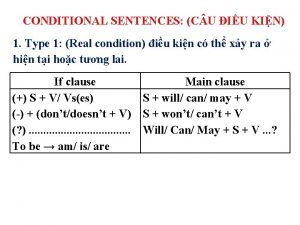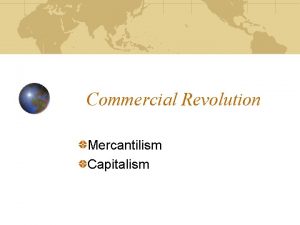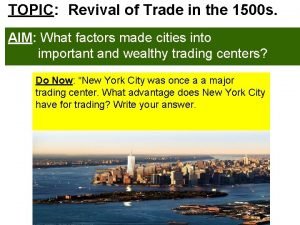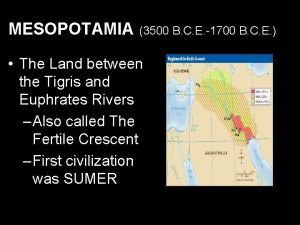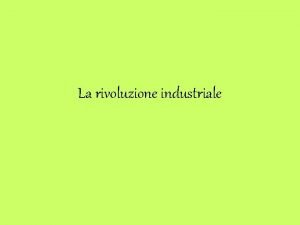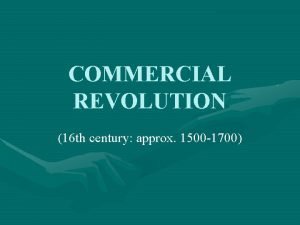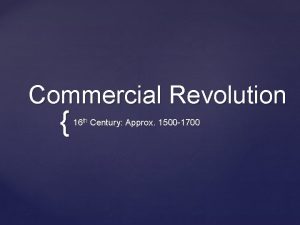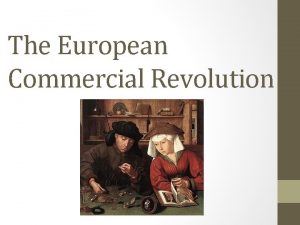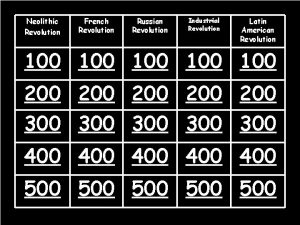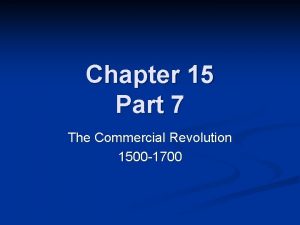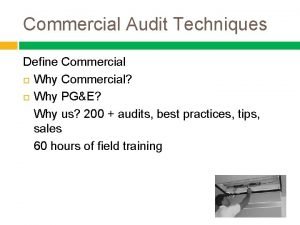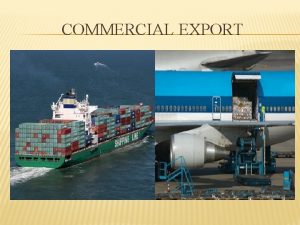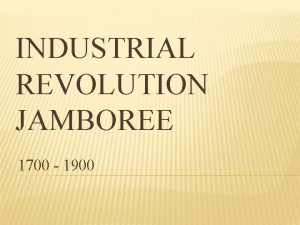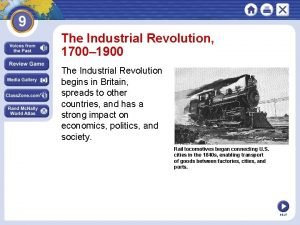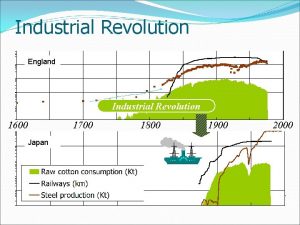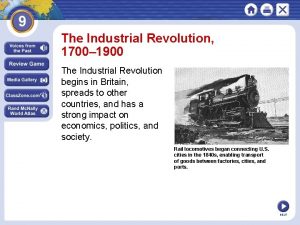The Commercial Revolution 1500 1700 Money has never






















- Slides: 22

The Commercial Revolution 1500 -1700

Money has never made man happy, nor will it, there is nothing in its nature to produce happiness. The more of it one has the more one wants. Benjamin Franklin Giving money and power to government is like giving whiskey and car keys to teenage boys. P. J. O'Rourke Money won't create success, the freedom to make it will. Nelson Mandela The rich are always going to say that, you know, just give us more money and we'll go out and spend more and then it will all trickle down to the rest of you. But that has not worked the last 10 years, and I hope the American public is catching on. Warren Buffett

What is commerce? What is a revolution?

Causes u Renaissance commercial growth u Population Growth –More Consumers u Price Revolution: Upward Trend in Prices u Why would prices go up? –Higher food prices, more $, influx of gold & silver (exploration) –Higher prices -> More Goods

u States & Empires wanted to increase their economic power u Rise of Capitalism –Entrepreneurs who invested their $ u. Middle Class (bourgeoisie) led the way

Features

u. Banking –Leaders in Europe u. Fuggers in Germany u. Medicis in Italy –To fund economic activities/business –Financial & Commerce Centers of Europe u 16 th Century: Antwerp in Belgium u 17 th Century: Amsterdam


u. Hanseatic League –Association of German states that controlled trade in Northern Europe

u. Chartered Companies –States allowed for monopolies in certain areas u. Some would become very powerful w/ large fleets of ships & military power –Examples u. British East India Company u. Dutch East India Company

u. Joint-Stock Companies –Investors combined their resources in the hopes of receiving more in return

u. Stock Markets Emerged – Investors buy stock (partial ownership) in a company – Hoped the value of the company increases -> their return on their investment – The Bourse in Antwerp

What company might you want to buy stock?

u. New Industries Emerged –Examples: cloth, mining, shipbuilding, etc. u. New Consumer goods

Mercantilism

u. Mercantilism (17 th Century) u. Limited Amount of Wealth in World – Goal: Nations seek a self-sufficient economy – Strategy: Create a favorable balance of trade u. How? – “Bullionism”: Acquire as much gold & silver as possible – Colonies were to serve the mother country

Significance

Transition From u Rural & Isolated Europe u u To a more developed Europe w/ emerging towns

Emergence of more powerful nation states u. Fueled wealth u. Why by economic doesn’t Italy send out many explorers?

Motivated the Age of Exploration u. To establish new overseas empires

Emerging Middle Class Nobility u Income Stayed Fixed u Bourgeoisie u Income Grew u What often accompanies Economic Power? ? ?

Increased Standard of Living
 Dana damian
Dana damian Can run but never walks has mouth
Can run but never walks has mouth Commercial and noncommercial food service operations
Commercial and noncommercial food service operations Love never fails it never gives up
Love never fails it never gives up We are never weary of the grand old song
We are never weary of the grand old song Because you speak english unnaturally
Because you speak english unnaturally He never polishes his shoes so he never looks smart
He never polishes his shoes so he never looks smart When all else fails god never does
When all else fails god never does The commercial revolution
The commercial revolution Mercantilism and commercial revolution
Mercantilism and commercial revolution Commercial revolution
Commercial revolution Commercial revolution
Commercial revolution Mco1700.23f
Mco1700.23f Lexile framework for reading
Lexile framework for reading Joseph jardin fdny
Joseph jardin fdny 1700 piano
1700 piano Christopher columbus significance
Christopher columbus significance Dynastic cycle def
Dynastic cycle def Eta 1700
Eta 1700 Rivoluzione agricola 1700
Rivoluzione agricola 1700 1700 luvun aatesuunta
1700 luvun aatesuunta Rotazione quadriennale 1700
Rotazione quadriennale 1700 Comment on paradise lost as a puritan age document
Comment on paradise lost as a puritan age document






